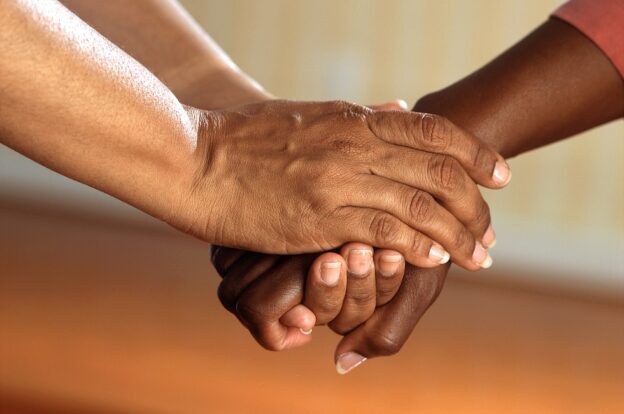The grief that someone experiences after the loss of a loved one can be incredibly debilitating. For many people, it can be difficult to even get out of bed or take care of themselves. The process of grief is very complex and can bring about a wide range of emotions. One moment an individual may be devastated beyond belief, and the next, they may be smiling at a positive memory they recalled of their deceased loved one.
If you’ve never experienced grief before, it can be a hard thing to understand or relate to. It can be even more difficult to know how to help someone you know who may be struggling. However, support for someone experiencing grief is very important. It can even help to prevent them from doing something they will later regret, such as turning to substance use as a way of coping with the pain related to the loss.
The more you learn about the stages of grief, the more equipped you will be to help others.
The 7 Stages of Grief
There is no wrong way to grieve – any emotions that someone may be experiencing are valid. Everyone handles grief differently. Some people grieve very openly, while others prefer to keep their feelings inside. There is also no specific time frame for grief. You can’t approach someone and tell them that they are grieving too fast or too slow because we can’t really understand where they are at in the process. With that being said, in general, grief commonly occurs in seven stages.
#1. Shock and Denial: The first stage of grief is shock and denial. This stage can be especially intense for those who lost a loved one suddenly. They feel unable to confront the reality that their loved one has passed and try to pretend that nothing has happened. They feel as if their emotions have been numbed.
#2. Pain and Guilt: At this point, the reality of what has happened is beginning to set in, and the individual is probably going to be missing their loved one quite a bit. They may be agonizing over their last encounter with them and wonder if they should have been more present or handled things differently.
#3. Anger and Bargaining: In this stage, the individual may feel angry that this has happened to them. They may take this anger out on those closest to them. If they believe in a higher power, they may try bargaining to get their loved one back.
#4. Depression and Loneliness: During the fourth stage of grief, the individual may feel as if they are living in a fog, unable to be happy. They are likely dealing with a lot of pain and are wondering how they are ever going to move forward with their life. They are likely thinking about their loved one a lot and really missing them.
#5. The Upward Turn: The fifth stage of grief is the upward turn. At this point, the individual’s emotions may be settling down a little. Of course, they still miss their loved one very much, but they are starting to think about what their life is going to look like moving forward.
#6. Reconstruction and Working Through: At this point, the individual is able to take a step back and consider where they are at in their grief and what issues they need to confront. They may feel ready to start getting their loved one’s affairs in order.
#7. Acceptance and Hope: The seventh and last step of the grief process is acceptance and hope. At this point, the individual has processed what has happened. Their pain is still there, but they are able to start moving forward.
How to Help Someone Dealing With the Process of Grief
It can be hard to know what to say to someone who is grieving. How do you comfort someone who may be going through the unthinkable? The best thing you can do is just be there for them. Let them know that you’re there for them and that they can come to you with anything, even if it is just to talk. Maybe they will want to talk about their loved one, or maybe not. Don’t force them to talk about anything that they aren’t ready for, just offer a listening ear.
Some other things that you might consider doing (with permission) to show your support include:
- Dropping off meals for them
- Helping with funeral preparations
- Helping them take care of things around the house that they might not have time for
- Taking care of their yardwork
- Offering transportation
- Offering childcare
- Helping with travel and arrangements
- Helping notify family members that may be out of town
Grief is a very complex thing that carries a lot of different emotions. It can be hard to know how to help someone who is struggling after the loss of a loved one. Learning about the stages of grief can help. There are generally seven stages of grief. However, everyone experiences grief differently, and there is no concrete timeline. The best thing that you can do for someone experiencing grief is to simply be there for them and let them know that you care. Some people turn to alcohol or drugs to deal with grief. If you or a loved one is struggling with a substance use disorder, our team at The Ho Tai Way can help. Call (714) 881-8931.









